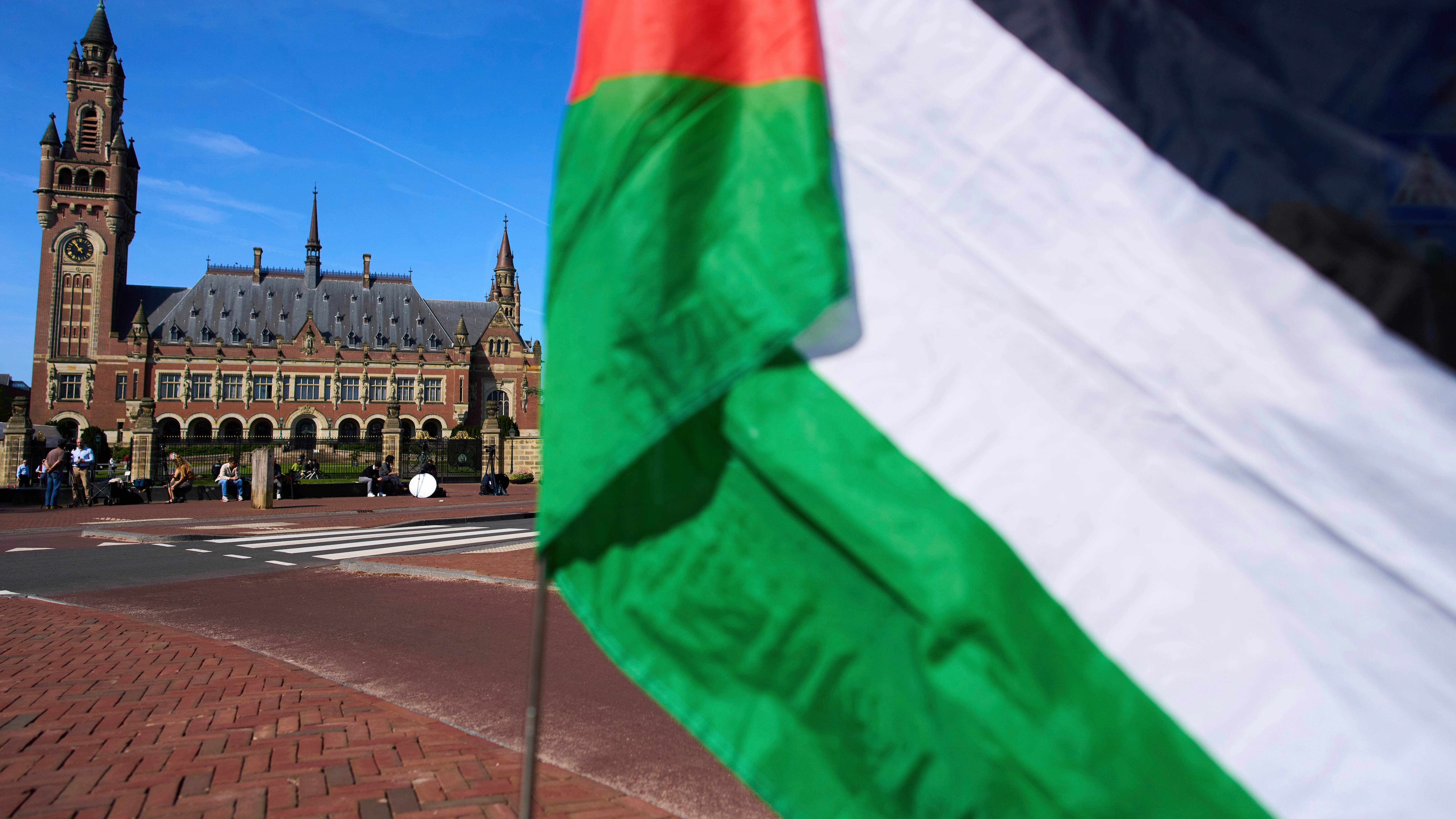Top UN court to rule on Israel's obligations to ensure humanitarian aid reaches Palestinians

THE HAGUE, Netherlands (AP) — The top United Nations court is set to give an opinion Wednesday on Israel’s legal obligations to ensure desperately needed humanitarian aid reaches Palestinians in Gaza and the occupied West Bank.
The U.N. General Assembly asked the International Court of Justice last year to give an advisory opinion on Israel’s legal obligations after the country effectively banned the U.N. agency for Palestinian refugees, the main provider of aid to Gaza, from operating in the territory.
Advisory opinions carry significant legal weight and experts say the case could have broader ramifications for the U.N. and its missions worldwide.
A ceasefire to consider
The proceedings predate the current fragile U.S.-brokered Gaza ceasefire agreement, which took effect on Oct. 10, and aims at ending the two-year war in the Palestinian enclave. Though still in effect, the shaky truce was tested earlier this week after Israeli forces launched a wave of deadly strikes, saying Hamas militants had killed two soldiers.
Under the agreement, 600 humanitarian aid trucks are to be allowed to enter daily.
The U.N. has announced plans to ramp up aid shipments into Gaza. On Monday, Hamas chief negotiator Khalil al-Hayya told Egypt’s Al-Qahera News that Israel has complied with aid deliveries per the ceasefire agreement.
During the hearings in April, Palestinian Ambassador to the Netherlands Ammar Hijazi told the 15-judge panel that Israel was “starving, killing and displacing Palestinians while also targeting and blocking humanitarian organizations trying to save their lives.”
Israel denied it violated international law, saying the proceedings are biased, and did not attend the hearings. However, the country provided a 38-page written submission for the court to consider.
The UNRWA ban
Israel’s ban on the U.N. agency in Gaza, known as UNRWA, came into effect in January.
The organization has faced increased criticism from Israeli Prime Minister Benjamin Netanyahu and his far-right allies, who claim the group is deeply infiltrated by Hamas. UNRWA rejects that claim.
In March, Israel cut off all aid shipments for three months, leading to severe food shortages in the Palestinian territory. Eventually, Israel allowed in some aid while pushing forward with a highly criticized plan to shift aid distribution to the Gaza Humanitarian Foundation, a private U.S.-backed group. Conditions continued to worsen and international food experts declared a famine in parts of Gaza in August.
Israel has claimed there was enough food in Gaza and accused Hamas of hoarding supplies.
GHF has suspended its operations after the latest ceasefire was reached.
An advisory opinion
Advisory opinions issued by the U.N. court are described as “nonbinding” as there are no direct penalties attached to ignoring them. However, the treaty that covers the protections that countries must give to U.N. personnel says that disputes should be resolved through an advisory opinion at the ICJ and the opinion “shall be accepted as decisive by the parties.”
The U.N. General Assembly asked for the ICJ’s guidance in Dec. 2024 on “obligations of Israel … in relation to the presence and activities of the United Nations … to ensure and facilitate the unhindered provision of urgently needed supplies essential to the survival of the Palestinian civilian population.”
“We cannot let states pick and choose where the U.N. is going to do its work. This advisory opinion is a very important opportunity to reinforce that,” Mike Becker, an expert on international human rights law at Trinity College Dublin, told The Associated Press ahead of the hearings in April.
The ICJ has issued other advisory opinions on Israeli policies. Two decades ago, the court ruled that Israel’s West Bank separation barrier was “contrary to international law.” Israel boycotted those proceedings, saying they were politically motivated.
In another advisory opinion last year, the court said that Israel’s presence in the occupied Palestinian territories is unlawful and called on it to end, and for settlement construction to stop immediately. That ruling fueled moves for unilateral recognition of a Palestinian state. Israel condemned the decision, saying it failed to address the country’s security concerns.
Arrest warrants for Netanyahu
Last year, another tribunal in The Hague, the International Criminal Court issued arrest warrants for Netanyahu and his former defense minister, Yoav Gallant, alleging the pair have used “starvation as a method of warfare” by restricting humanitarian aid and have intentionally targeted civilians Advisory opinions carry significant legal weight and experts say the case could have broader ramifications for the United Nations and its missions worldwide — charges Israeli officials strongly deny.
The advisory opinion at the ICJ is separate from the ongoing proceedings initiated by South Africa, accusing Israel of committing genocide in Gaza. Israel rejects South Africa’s claim and accuses it of providing political cover for Hamas.
The war in Gaza was triggered by Hamas' surprise attack on southern Israel that left 1,200 dead and 250 taken hostage. Israel’s retaliatory offensive in the Palestinian territory has killed more than 68,000 people, according to Gaza’s Health Ministry.
The ministry's figures are seen as the most reliable by U.N. agencies and independent experts. Israel has disputed them without providing its own toll.

